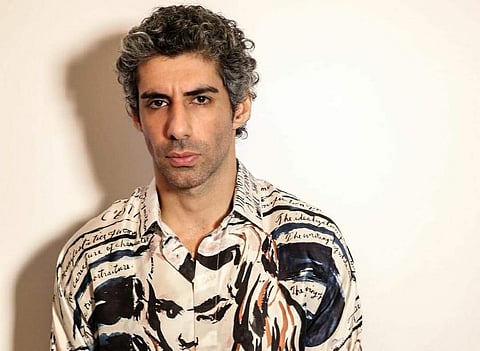
- LIFESTYLE
- FASHION
- FOOD
- ENTERTAINMENT
- EVENTS
- CULTURE
- VIDEOS
- WEB STORIES
- GALLERIES
- GADGETS
- CAR & BIKE
- SOCIETY
- TRAVEL
- NORTH EAST
- INDULGE CONNECT

Jim Sarbh started his career with theatre and has been a part of productions like Alyque Padamsee’s 2013 revival of Death of a Salesman, Rajat Kapoor’s What’s Done is Done, Rage Productions’ The Glass Menagerie, Kalki Koechlin’s Living Room, and much recently Bruce Guthrie’s Sea Wall, a monologue that he performed at Mumbai-based National Centre for the Performing Arts’ (NCPA) 50th anniversary last December. Parallelly, the talented actor, who knows how to hold your attention with his craft, also created a space for himself in the world of cinema with films like Neerja, Padmaavat, A Death In The Gunj, Sanju, Yeh Ballet and the recently released web film, Taish. We caught up with the actor to know more about Taish, the evolution of theatre during the down, his fitness routine and how he used the time to become more aligned with his emotional health. Excerpts:
How has theatre, as an industry, evolved in the last six-seven months?
I have watched a couple of online plays on Zoom but they weren’t good. It is more fun to listen to readings than watching online plays. NCPA and Prithvi Theatre are offering online courses, which is interesting. They both are also trying to shoot performances so that we can have recorded performances but it hasn’t happened yet.
Are any of your plays going online?
I am in the process of shooting two plays. One is Sea Wall, a monologue that I performed last year at NCPA. Another is a play with Naseer (Naseeruddin Shah) which I am currently in conversation about.
What made you sign Taish?
There were a lot of things. First being the idea of working with Bejoy Nambiar (the man behind Shaitan). When he narrated the story, I really enjoyed some of the subjects it touched upon, most importantly the idea of male friendship. It features two people who share deeper feelings, which you wouldn’t admit to the rest of the world or even your partner, being able to talk frankly. Besides, it is often said that women can’t control their emotions but in actuality, it is men who can’t control their emotions and urges, and it is much bigger a problem in this world. It is more problematic than any kind of emotion that women show. In fact, I would much prefer if men were more similar to women in this regard. This film is all about not unleashing your rage.
Did you go through any physical transformation for this film?
Yes, I did. I was on an intense workout and diet. I was doing weight training combined with a good amount of football, basketball and other workouts. And, this was happening at least five-six times a week. The dietary restrictions were also heavy — absolutely no carbs, only veggies, meat, eggs and paneer. I was on this routine for about two to three months. The result? I was in the best shape till date.
How was lockdown for someone like you who is aware of his emotional health?
Amazing! I really enjoyed it. I was a part of that tiny percentage who had their own apartment and enough money to sustain a few months. So, that helped. Apart from that, I enjoyed getting back to basics like reading, connecting with my friends, looking after my plants, cleaning the house and attending lots of calls. I also adopted a kitten from the street on the second day of the lockdown and took care of her throughout.
The last few months also gave me time to rethink about things that I haven’t had time for earlier. I had started the refocusing process even earlier but the lockdown extended that process or rather accelerated the process because suddenly, I had time to do all that. Lockdown was a nice period of coming to terms with the emotional patterns that I had definitely gotten into, which was staying busy, not being satisfied with things, getting into a period of numbing, acting a certain way but also realising that you no longer have a deep connection with yourself. I realised that I am no longer connecting with myself about how I feel because either I am too busy or I am pretending that everything is fine.
heena@newindianexpress.com
Twitter: @heenkhandlwal